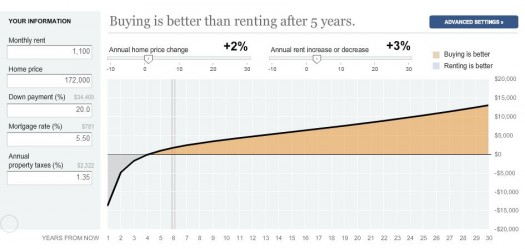 Real Estate has a language all its own. As you prepare to purchase your home, become familiar with these frequently used terms.
Real Estate has a language all its own. As you prepare to purchase your home, become familiar with these frequently used terms.
Adjustable Mortgage Loans: Mortgage loans under which the interest rate is periodically adjusted to more closely coincide with current rates. The amounts and times of adjustment are agreed to at the inception of the loan. Also called: Adjustable Rate Loans, Adjustable Rate Mortgages (ARMs), Flexible Rate Loans, Variable Rate Loans.
Amortization: Payment of a debt in equal installments of principal and interest, rather than interest-only payments.
Annual Percentage Rate (A.P.R.): The yearly interest percentage of a loan, as expressed by the total finance charge actually paid (interest, loan fees, points). The A.P.R. is disclosed as a requirement of federal truth in lending statutes.
Buydown: A payment to the lender from the seller, buyer, or third party, or some combination of these, that causes the lender to reduce the interest rate during the early years of the loan.
Cap: In adjustable rate mortgages, the limit on how much the interest rate or monthly payment can change.
Closing: The final procedure in which documents are executed and/or recorded, and the sale (or loan) is completed.
Closing Statement: The statement which lists the financial settlement between buyer and seller, and also the costs each must pay.
CMA: CMA, or Competitive Market Analysis, is a comparison of homes similar to a seller’s home in terms of size, style, features, and location that have sold recently or are on the market. A CMA is prepared by a real estate agent to help set a home’s listing price.
Contingency: Commonly, a stated event which must occur before a contract is binding. For example, a home sale may be contingent upon the buyer obtaining financing.
Deposit: A portion of the down payment given by the buyer to the seller or escrow agent with a written offer to purchase. Paying a deposit shows good faith on the part of the potential buyer.
Down payment: Cash portion of the purchase price paid by a buyer from his own funds as opposed to that portion which is financed.
Escrow: A procedure in which a third (neutral) party holds all funds, documents, etc. necessary to the sale, with instructions from both buyer and seller as to their use and disposition.
FHA Loan: A loan insured by the Federal Housing Administration, a part of the Department of Housing and Urban Development. FHA insurance enables lenders to loan a very high percentage of the sale price.
Graduated Payment Mortgage: A mortgage initially offering low monthly payments that increase at fixed intervals and at a predetermined rate.
Hazard Insurance: Otherwise known as homeowners’ insurance. This is a usual requirement of a mortgage lender and an advisable safeguard for any homeowner to protect against loss.
Index or Rate Index: A measure of interest rate changes used to adjust the interest rate of an Adjustable Mortgage Loan. Example: the change in U.S. Treasury securities (T-bills) with a 1-year maturity, based upon their weekly average yield.
Lien: A legal claim or charge on property as security for payment of a debt or for the discharge of an obligation.
Loan-to-Value Ratio: The ratio – expressed as a percentage – of the amount of a mortgage loan to the appraised value or selling price of the property.
Lock box: A key storage system placed on a home entrance that is accessible only by active, licensed real estate agents who must abide by a strict set of guidelines when showing a seller’s home.
Margin: In Adjustable Mortgage Loans, the number of percentage points the lender adds to the index rate to determine the new interest rate at each adjustment.
MLS: MLS stands for multiple listing service, by which member brokers cooperate in the sale of each other’s listings. Sellers may choose not to allow their property into multiple listing, if they wish.
PITI (Principal, Interest, Taxes, and Insurance): Used to indicate the four major items included in a monthly mortgage payment.
Points: A fee charged by a lender as a service charge or as an amount needed to make the yield on a mortgage competitive with other types of investments. Each point represents 1% of the loan amount.
Price Trend Analysis: A tool developed and used exclusively by Weichert, Realtors to help set a home’s listing price by projecting local trends. Used in conjunction with a CMA, or Competitive Market Analysis. Because home values appreciate over time, a Price Trend Analysis maximizes listing prices.
Principal: Amount of debt, not including interest; the face value of a loan.
Private Mortgage Insurance: Insurance issued by a private company against a loss by a lender in the event of default. Private mortgage insurance is generally required for conventional financing whenever less than 20% is put down.
Second Mortgage: A mortgage which ranks after the first mortgage lien in priority.
Settlement: Same definition as closing.
Title Insurance: Insurance against loss resulting from defects of title of public record.
VA Loans: Loans partially guaranteed by the Veteran’s Administration, enabling veterans to buy a home with little or no down payment.
Do you still have questions? Please do not hesitate to contact Milton Ryan. Milton will help you to understand the factors that impact your real estate decisions.
 Every spring, daylight savings time gives us an extra hour of light in the evening. Here are some home maintenance tips that you can use while enjoying that extra spring sunshine.
Every spring, daylight savings time gives us an extra hour of light in the evening. Here are some home maintenance tips that you can use while enjoying that extra spring sunshine.


